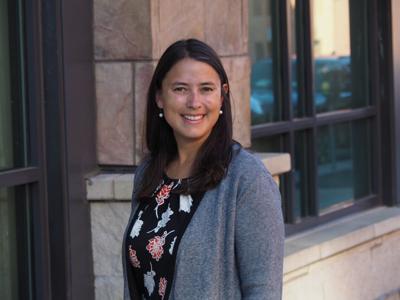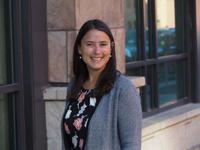Zahra had tears in her eyes when she walked into my first-grade classroom in mid-October. A refugee from Afghanistan, Zahra has never before set foot in a U.S. school. She spoke Pashto and had not learned English yet. “Hi Zahra, I’m Mrs. Vance,” I said. “I am so glad to have you in our class this year.”
I held out my hand to greet her, but Zahra’s hands did not move from her side. She remained quiet as I led her to her desk. I used visual magnets to show what was needed for the first activity. She pointed to a pencil and I nodded. Starting a new school is hard for anyone. But without the words to communicate, Zahra’s fear and unfamiliarity were palpable.
Out of the 8,822 students enrolled in my district, 447 students are categorized as No English Proficiency (NEP). The number of newcomer students across Colorado is in the thousands, according to Colorado Public Radio. Like Zahra, many have never experienced an American public school yet are expected to learn aspects of school quickly.
The Biden administration called bilingualism a superpower but even superheroes need a team to support them. Colorado’s multilingual learners (MLLs) need specialized support to ensure they have every opportunity to succeed in school. We must develop programs for newcomers like Zahra and implement better training for teachers like me who work with them, including incentives for educators to become bilingually endorsed.
First, we need newcomer programs that provide these students with time to transition into American schools. High-quality newcomer programs assess students’ individual needs and areas for growth, leverage their home language skills, and engage their families. At their core, these services orient students to the American school system and give them tools to succeed academically and socially.
I feel sure that if Zahra had been able to participate in a newcomer program, she would have felt more comfortable walking into my classroom on that October morning.
Next, educators like me need to be trained in the practice of culturally responsive teaching to help students new to our country feel valued.
For example, we should make sure that students can see themselves in the curriculum so that they can feel a sense of belonging and be more likely to feel engaged and successful in school.
When teachers learn about students’ backgrounds, implement relationship-building techniques, and read stories that students can relate to, students are more attentive in school. When I read “Only One You” by Linda Kranz, which talks about everyone being welcome in society no matter their background or ethnicity, I saw Zahra’s eyes light up. Looking at the illustrations in the story, Zahra understood that she had a place in our classroom. At that moment, I knew that Zahra felt a sense of belonging.
Lastly, educators must have incentives to stay in education and increase their skill sets. Salary increases, bonuses, and scholarships are just a few ways to retain teachers who work with newcomer students in Colorado’s classrooms. We also need more avenues for teachers to get their bilingual endorsement. Bilingual endorsements allow licensed teachers to continue their career in learning specific techniques of how to help students from a variety of language backgrounds.
Students such as Zahra are an asset to our schools, shining a light on other perspectives and world views. It is up to us to make their transition into our schools easier, so that Zahra’s future is a bright one and full of opportunities.
Laura Vance is a first-grade teacher at Stratton Meadows Elementary School in Colorado Springs. She is a 2023-2024 Teach Plus Colorado Policy Fellow.




 Your Privacy Choices
Your Privacy Choices